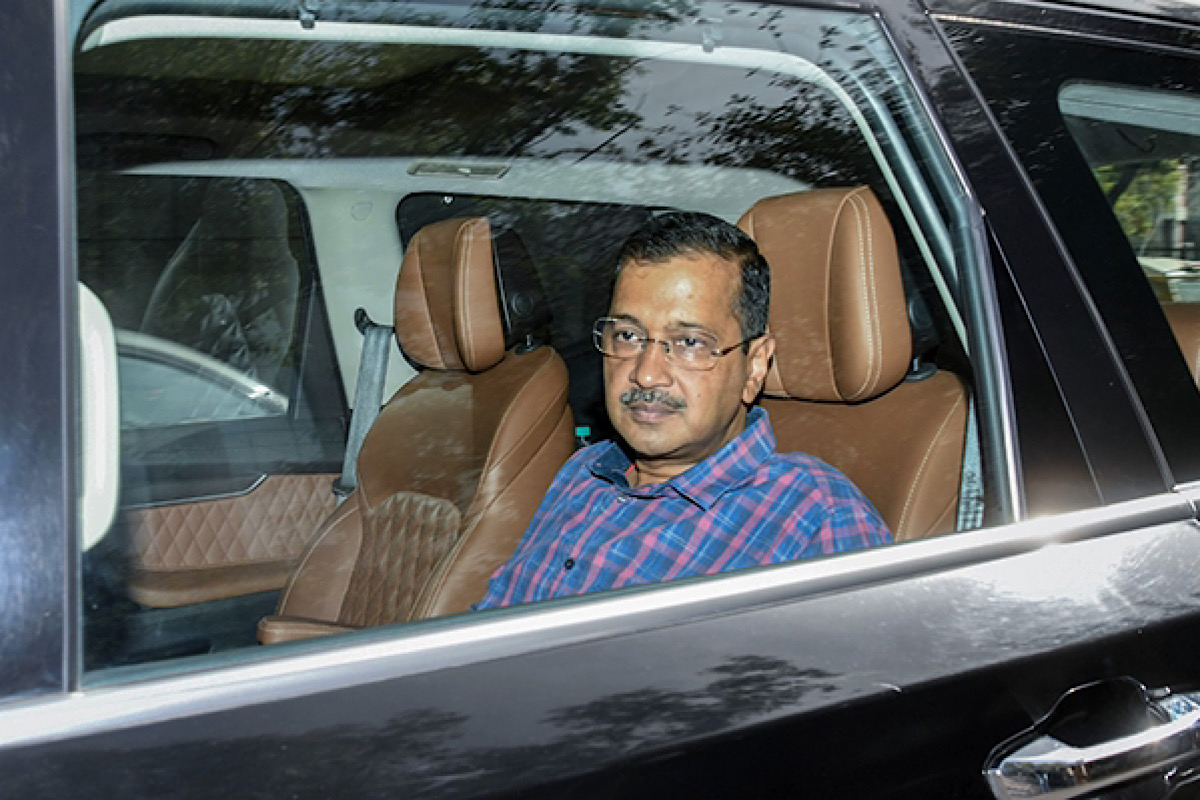The Supreme Court on Friday said it may consider giving interim bail to Delhi Chief Minister Arvind Kejriwal on May 7 in view of the ongoing Lok Sabha polls as it noted that the arguments by the Enforcement Directorate opposing Kejriwal’s plea against his arrest in the excise policy case, is likely to take some time.
A bench, comprising Justice Sanjiv Khanna and Justice Dipankar Datta, said this as the arguments by the Additional Solicitor General S.V. Raju appearing for the Directorate of Enforcement remained inconclusive and will continue on May 7, 2024.
Advertisement
“We will post it on Tuesday morning itself. Mr Raju one more thing. If it is going to take time, it does appear it may take time (for the arguments to conclude), we may then consider the question of interim bail, because of the elections. We may hear on that part because of elections,” Justice Khanna heading the bench told the Additional Solicitor General appearing for ED.
However, the bench also made it clear that it has not decided anything finally and that it was only informing all counsel that such a form of interim relief may be considered if, as the hearing is unlikely to conclude soon. The bench said this as ASG Raju appeared resisting the suggestion of giving interim bail to Kejriwal. He said that the petitioner (Kejriwal has not filed an application for bail.
In the course of the hearing, the bench also asked about the dates of Lok Sabha elections in Delhi.
“We are not saying anything (on whether bail will be granted or not), we would like to consider grant of interim bail because of elections…. We may or may not grant. We are going to hear you. We must be open to you, because neither side should be taken by surprise,” the bench said this to ASG Raju and senior advocate Abhishek Manu Singhvi appearing for Kejriwal.
Another issue flagged by the bench was whether Kejriwal should be signing the files because of his present position.
“One thing more. Please also take instructions. Because of the position he holds, whether he should be signing official files,” Justice Khanna told ASG.
Kejriwal has approached the top court challenging the Delhi High Court’s April 9, 2024, order rejecting his plea against his arrest by the ED and the subsequent remand. The top court had asked the Enforcement Directorate to respond to Kejriwal’s plea.
Kejriwal in his plea against the High Court order has contended that his arrest after announcement of the General Elections is “motivated by extraneous considerations”.
Describing his arrest as “motivated”, Kejriwal has contended that a sitting Chief Minister has been arrested in the middle of election cycle and especially after the announcement of the schedule of the 2024 Lok Sabha election.
The petition by Kejriwal against the High Court order says that the statements and material relied upon by the ED against him was in its possession for the last niner months but why it acted when general elections were on.
These statements relied upon as grounds of arrest were recorded by the ED from December 7, 2022, till July 27, 2023 and subsequently no further material has been collected against Kejriwal, states the petition.
“Moreover, such statements and material were in possession of the Enforcement Directorate for the last nine months and still the arrest has been made illegally in the middle of general election 2024”, says the petition by Kejriwal.
The petition says that Kejriwal’s arrest also constitutes an “unprecedented assault on the tenets of democracy” based on “free and fair elections” and “federalism”, both of which form significant constituents of the basic structure of the Constitution.











